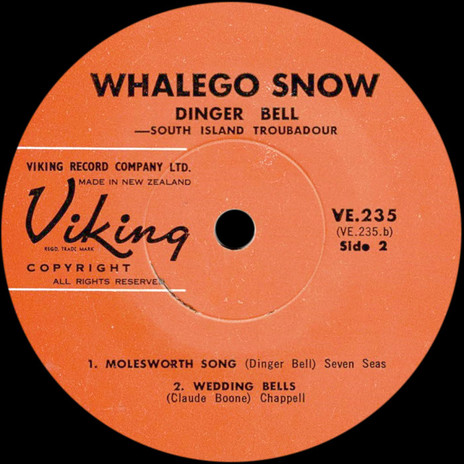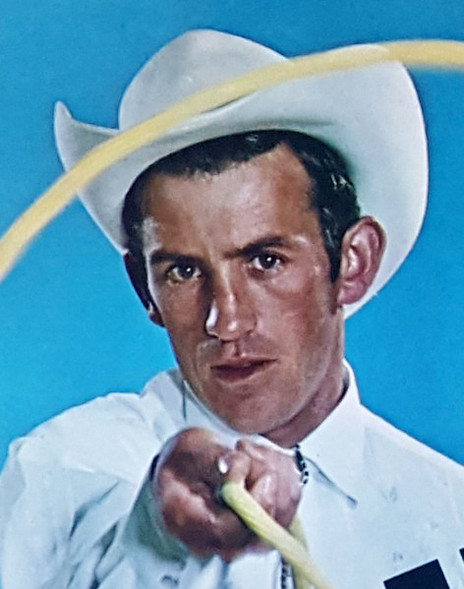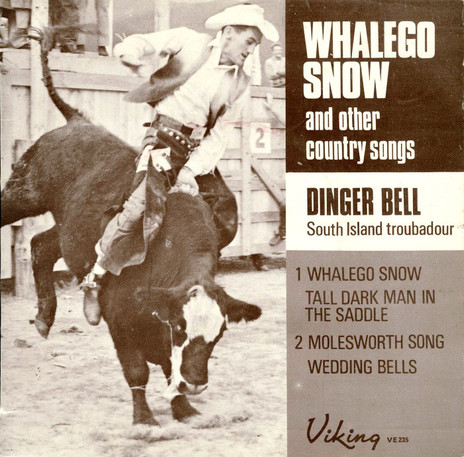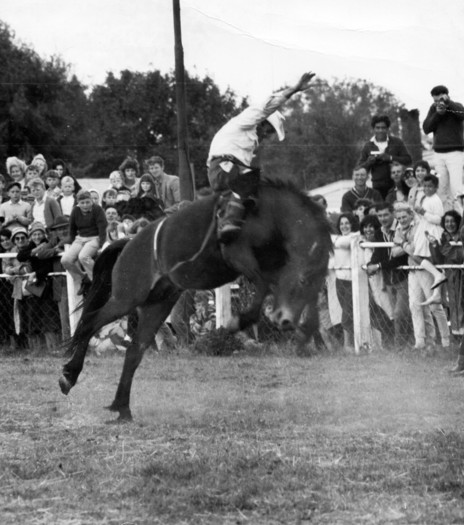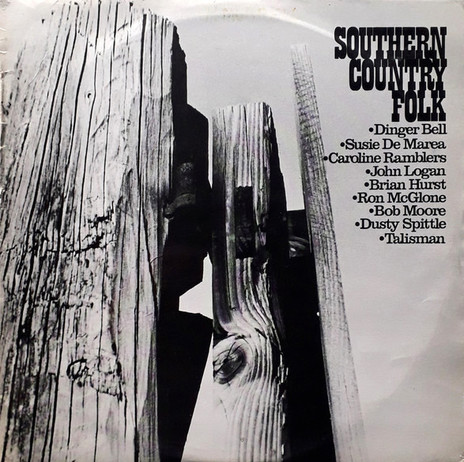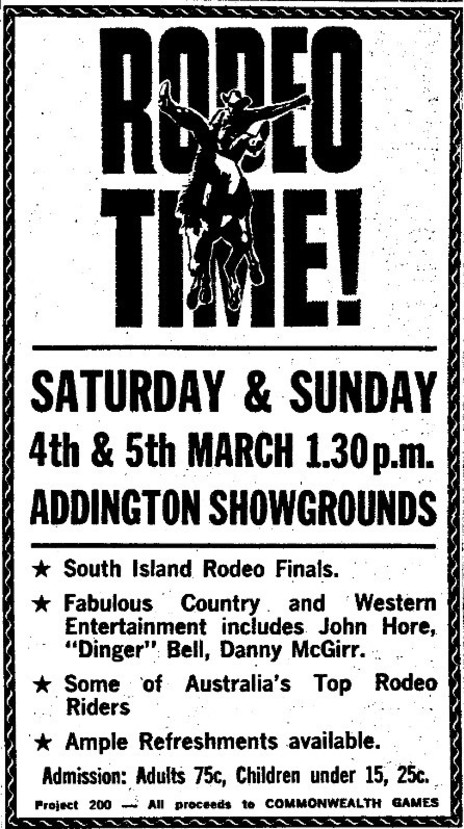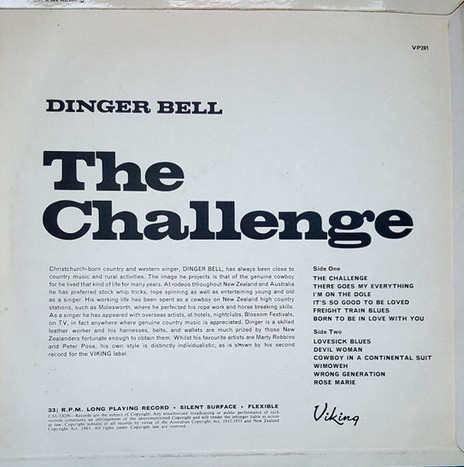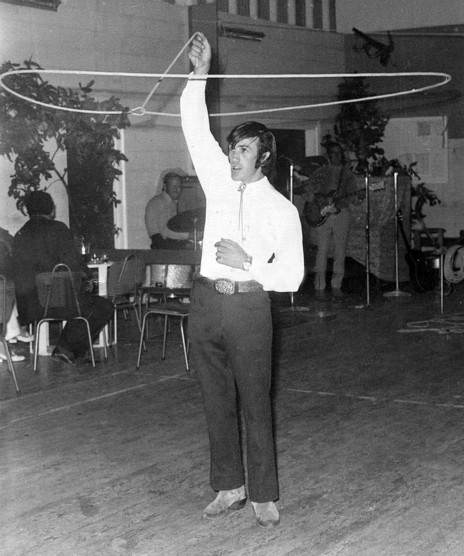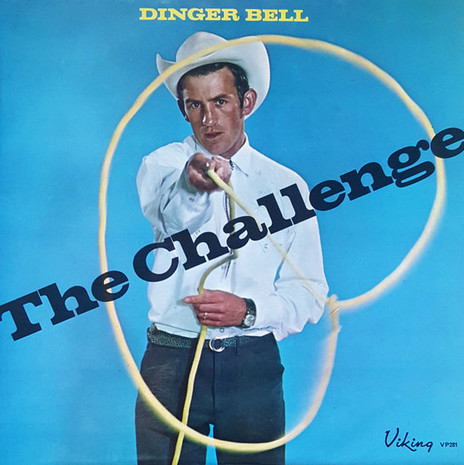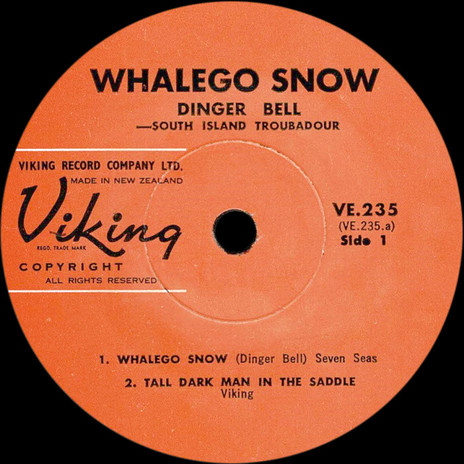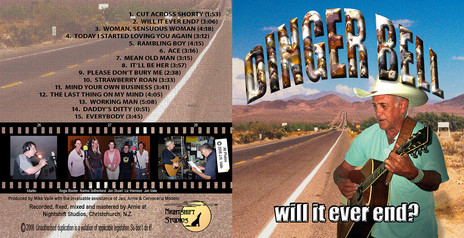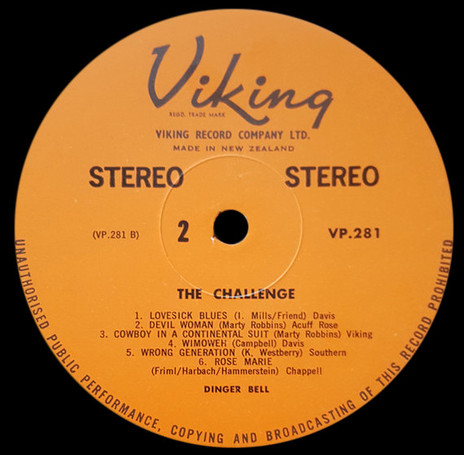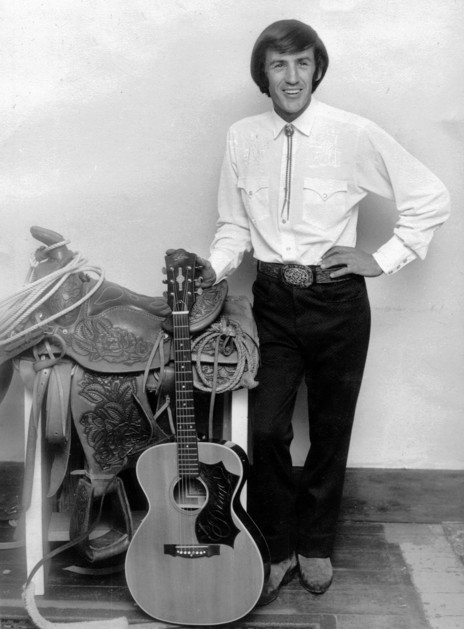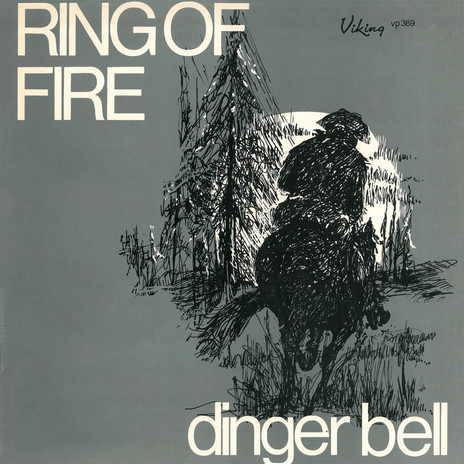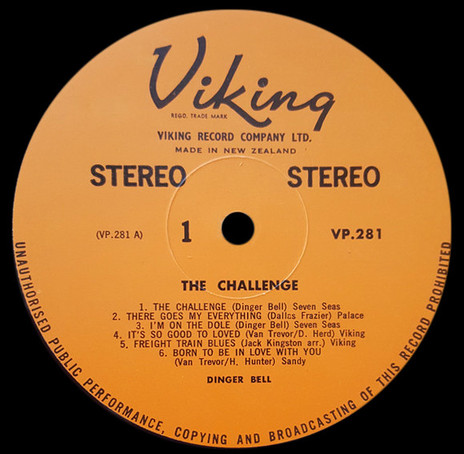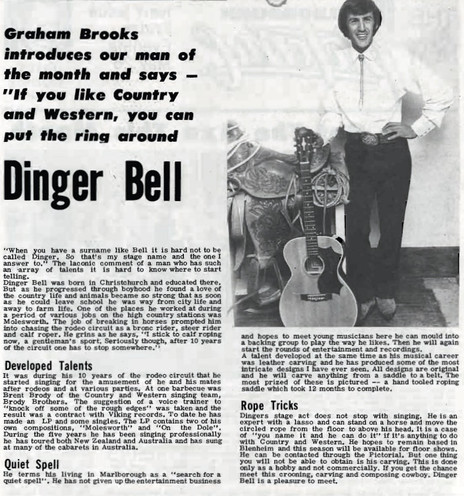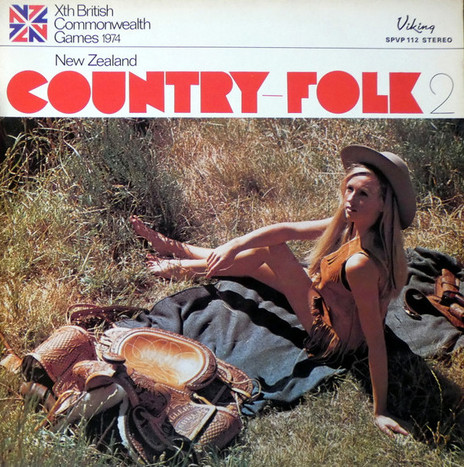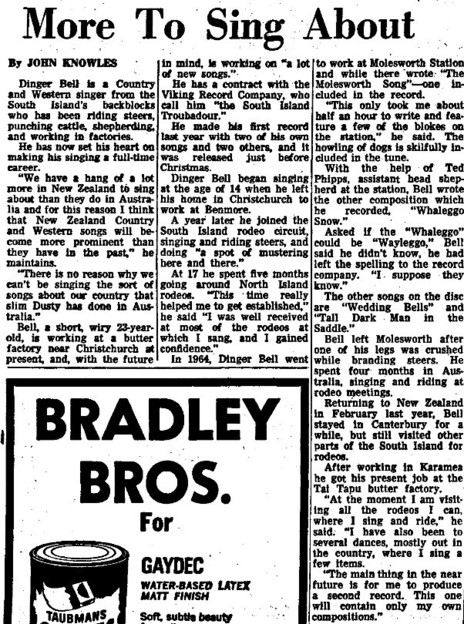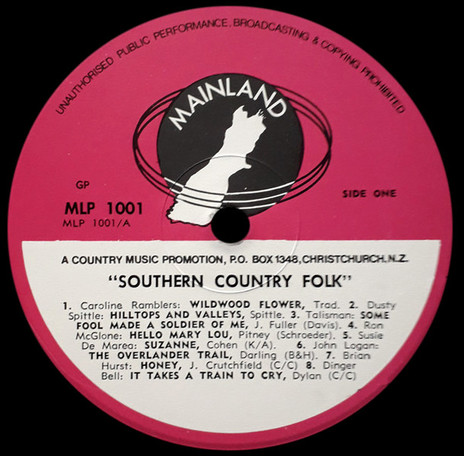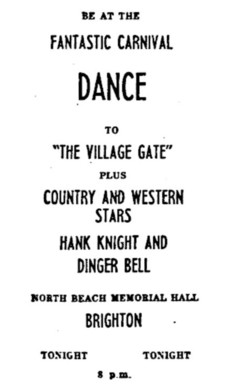In the late 1960s and early 1970s, Dinger Bell released three records on the Viking record label before relocating to Australia where he changed his name and continued to perform. In 1983 he was briefly back in New Zealand, ropes and all, supporting English garage rockers The Troggs and Christchurch post-punk rock’n’roll revivalist Ritchie Venus in what must be one of the country’s oddest tour packages.
Born John Bell in Christchurch on 20 November 1943, he was enchanted by the singing and yodelling of Pat McIlroy, a mate of his older brother, and would attempt to emulate his style. Working after school and on Saturdays brought Bell 10 shillings a week, the exact amount for his weekly guitar lessons.
BELL WAS DISCOVERED AT A PARTY SINGALONG; VOCAL TUITION FOLLOWED, THEN A RECORD DEAL
Formal education wasn’t a priority and he left school at 14, working as a potato picker and haymaker before landing a job with the power board at Benmore, which supplied electricity to the Lindis Pass. His guitar was never out of reach.
A workmate at Benmore noticed Bell’s interest in horses and got him involved in the South Island rodeo circuit. With Southland riders Graham Bell and Bert Bell already well established, John Bell was bestowed the nickname “Dinger”. It stuck.
As well as bronc-and-steer riding, calf-roping and whip-cracking, Dinger Bell took every opportunity to sing and play guitar for the other riders after events and at parties. Upon seeing Brucie Ryan spinning rope, he bought his own ropes from Australia and started practising rope tricks.
Around 1961, Bell spent five months on the North Island circuit. By 1964, he was breaking in horses at Molesworth Station, New Zealand’s largest high-country station at almost half a million acres, in the Marlborough District. A leg injury suffered while branding steers saw him leave Molesworth and spend four months in Australia, singing and riding at rodeo meetings.
At a party singalong back in New Zealand, Bell encountered Zodiac recording artist Brent Brodie, who suggested he seek some vocal tuition to iron out his technique. He was put through his paces with classical songs, hymns and the likes of Mario Lanza’s ‘The Student Prince’. After singing at a work party, Bell was approached by Tai Tapu butter factory workmate Wayne Pester, an offsider of Christchurch promoter Trevor King.
Pester offered to manage Bell and set up a recording session in which Bell accompanied himself on guitar. The resulting demos were taken to Viking who released four of them in late 1967 as the EP Whalego Snow and Other Country Songs. They credited Bell as “the South Island Troubadour” and misspelt the title track, which was a nod to Peter Newton’s 1947 musterer memoir Wayleggo.
The record also included Bell’s own ‘Molesworth Song’, written within half an hour while working at the station. The lyric mentioned “a pack of idiots” including “Ty, Max and me” and featured a chorus where Bell imitated the howling of the station’s dogs. By the final chorus, the dog was yodelling while the protagonist was “soaking up the grog” at a 21st.
Bell sang and performed rope and whip tricks in hotels, clubs, blossom festivals and on radio
For the next few years, Bell sang and performed rope and whip tricks in hotels, clubs, blossom festivals and on radio programmes, mostly in the South Island. For a period, Pester even secured him a regular spot with the Ridgway’s Circus.
The cover photo of his debut LP The Challenge, released in 1968, was an action shot of Dinger Bell spinning a lasso. The album contained two Bell originals in ‘The Challenge’ and ‘I’m On The Dole’, as well as standards such as ‘There Goes My Everything’ and ‘Devil Woman’. ‘The Challenge’ chronicled a rodeo rider’s encounter with “1,500 pounds of hate” in which the cowboy and brumby ultimately died.
Bell moved to Auckland, knocking about with Rusty Greaves and performing at Greaves’s Auckland Country Music Club in Newmarket, and spent three months in Cairns in 1971. He and his wife settled in Blenheim for what he termed in the April 1972 Marlborough Pictorial “a search for a quiet spell”.
For Country Music magazine editor and producer Bob Moore’s 1972 compilation Southern Country Folk, Bell raised the odd eyebrow when he chose to record Bob Dylan’s ‘It Takes A Lot To Laugh (It Takes A Train To Cry)’, giving himself a crash course in harmonica along the way. The Mainland Records LP also included tracks by Dusty Spittle with The Hamilton County Bluegrass Band.
Bell performed at the South Island Rodeo Championships alongside John Hore [Grenell] and Danny McGirr in 1972, and his final Viking LP Ring Of Fire was released in 1973; it featured two songs written by his Viking stablemate Ginny Peters. Before the year was out, Bell moved permanently to Queensland.
One of the first things he did was change his name to Danny Gordon. The horrific March 1973 firebombing of the Whiskey Au Go Go nightclub had sent a chill through sleepy Brisbane and club manager John Bell was initially under suspicion. Christchurch’s John “Dinger” Bell was taking no chances.
As Danny Gordon, he worked around Australia’s east coast and joined former world bull-riding champion and Australian recording artist Brian Young on the earliest incarnations of what would become Young’s annual treks to the most remote corners of Australia. There were also shows with New Zealand recording veteran Paul Walden, who had set up on the Gold Coast in the early 1970s.
In 1983 Bell toured the South Island with Ritchie Venus, supporting the Troggs
In 1983, Wayne Pester secured Bell an appearance on the TVNZ show That’s Country through host Ray Columbus. Around the same time, Pester and Trevor King were touring English band The Troggs, famous for their 60s hits ‘Wild Thing’ and ‘Love Is All Around’, through the South Island, stopping off at Christchurch, Dunedin, Invercargill, Timaru and Nelson.
Bell joined the entourage as van driver and would wow the audience with rope tricks backed by support act Ritchie Venus and his band. The flaming lasso may or may not have made a brief comeback while the band played ‘Fire’ by The Crazy World Of Arthur Brown.
Trevor King was also instrumental in bringing Bell to Christchurch to record his final album Will It Ever End? in 2008. Produced by Mike Vaile at NightShift Studios, it featured contributions from Bell’s sons, nieces and nephews. Not long after, Bell gave the game away and is now living in Gympie, a two-hour drive from Brisbane.
